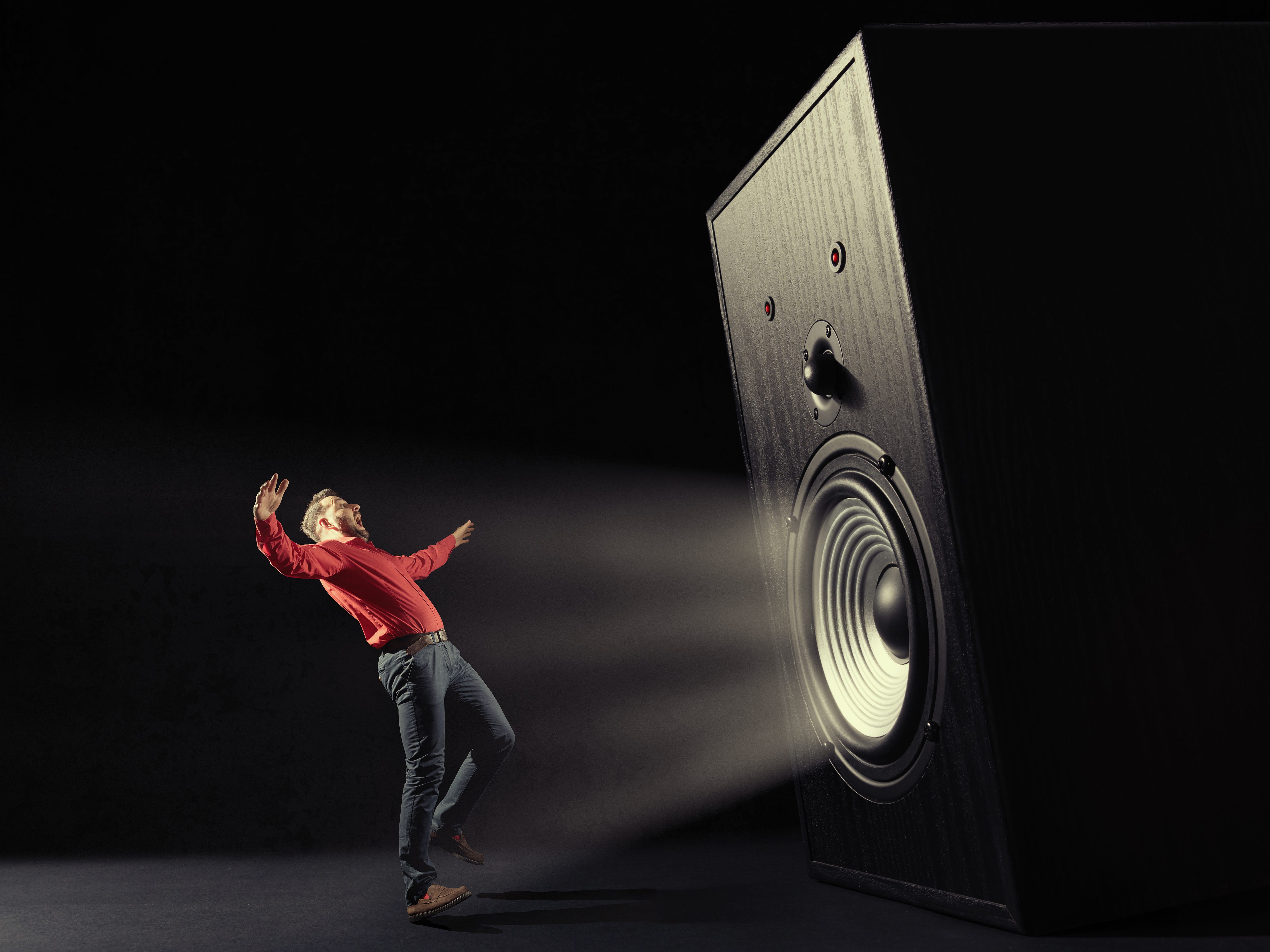
When it comes to speakers, you may have heard that bigger is always better. Is this really true? Will you always get better sound out of a bigger speaker?
The answer is, as you may have guessed, it depends. If you’re shopping for speakers, it isn’t always better to buy bigger speakers. It just depends on your needs and your budget.
Audio Capabilities
Most people tend to think that bigger speakers are better because they’re louder. Big speakers can easily reach high volumes that simply aren’t possible with a small speaker. If you need your speakers to be loud, then size will certainly matter, but louder audio doesn’t mean better audio.
It is true that in general, bigger speakers are capable of producing a greater range of frequencies with ease compared to smaller speakers. This is most pronounced in the bass frequencies; large tweeters can produce bass frequencies better, creating a full sound that isn’t achievable in the same way with small speakers. For this reason, when it comes to hi-fi applications, small speakers almost always come with a subwoofer in order to boost those bass frequencies and give it less of a “tin-can” sound.
However, this limitation doesn’t mean small speakers can’t produce high quality audio. There are many other factors that impact the audio quality of a speaker aside from size. In recent years, we’ve seen a push towards small, portable products. This has led to technological advancements that allow for more compact speakers, or more complex technology in a smaller package. Small speakers nowadays can offer outstanding audio quality, especially from front-line brands like Yamaha and Polk. The main drawback is that high quality small speakers tend to be more expensive than larger ones, because it is harder to make a small speaker that offers hi-fi sound quality.
Choosing Speakers
When it comes to buying speakers, the right size speaker for you depends on your needs.
The first thing you should consider is the size of the room. If the room is any bigger than 27 square metres, you probably should get big speakers (let’s say a “big” speaker has at least a 8-inch woofer). If you’re dealing with a smaller room, you won’t need big speakers to reach a comfortable listening volume. If you want a loud, room-filling experience, and feeling the bass is important to you, then big speakers are what you want, regardless of the room size.
The purpose of the speakers is the next thing to consider. If you’re getting speakers for recording and production purposes, there are small speakers that have many desirable features like high-trim response control, specific jacks, and high performance biamplification, and can still produce a full range of frequencies at a moderate volume. As far as consumer speakers go, if you’re building a home theatre or hi-fi audio system, or any more permanent and dedicated audio installation, bigger speakers will probably be the best bang for your buck. If you’re a more casual listener, or you have other features in mind, small speakers can have a lot to offer. There are some features like wireless capabilities, durability, weight, and aesthetics that small speakers may be able to offer better than larger speakers. These are all valid features to consider when choosing a speaker, and going for smaller speakers for those reasons doesn’t mean you’re sacrificing audio quality.






